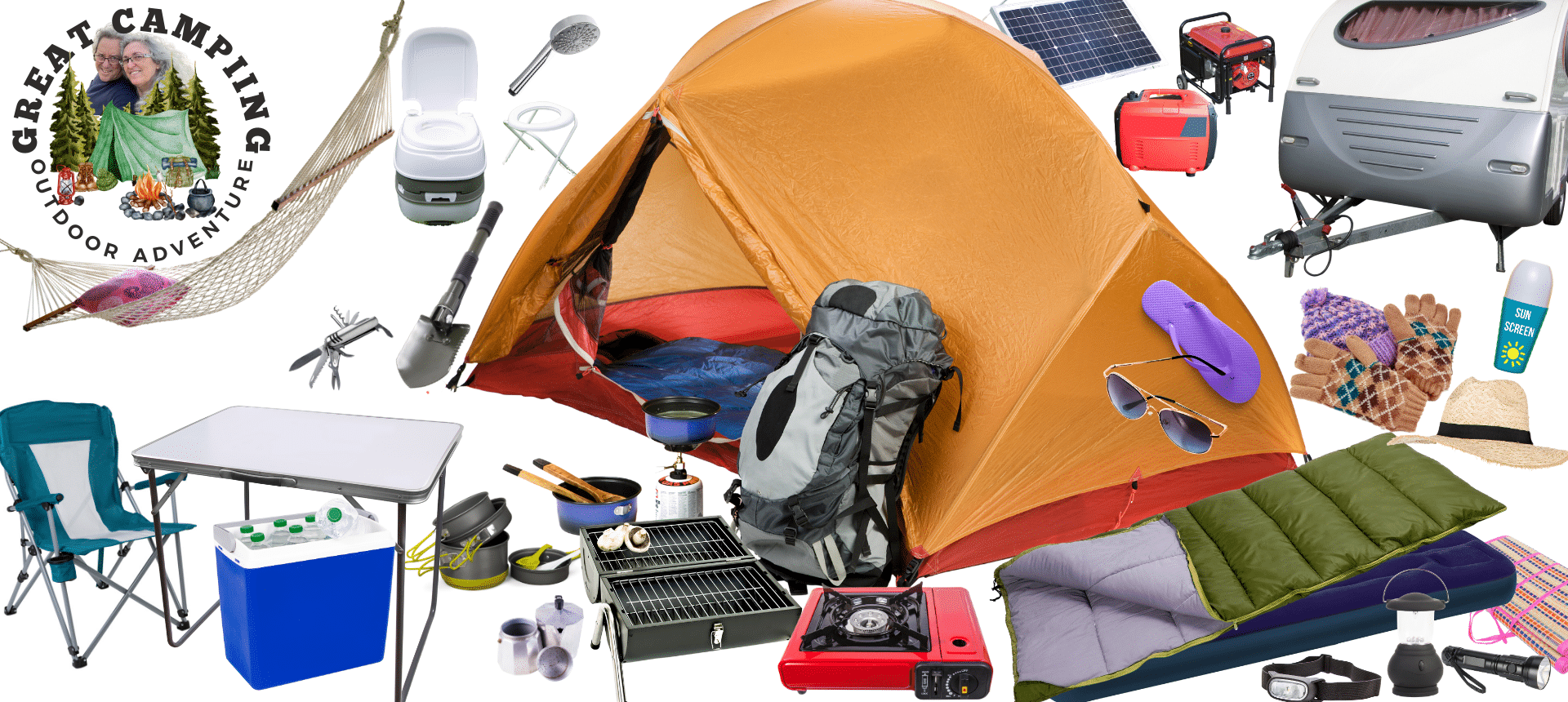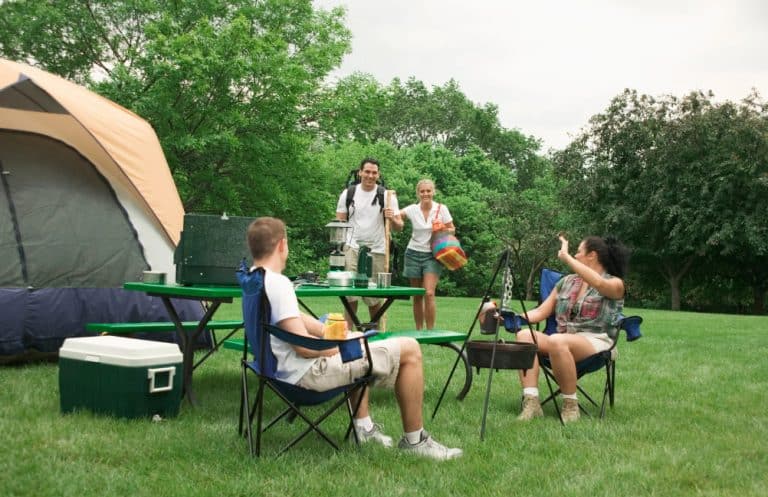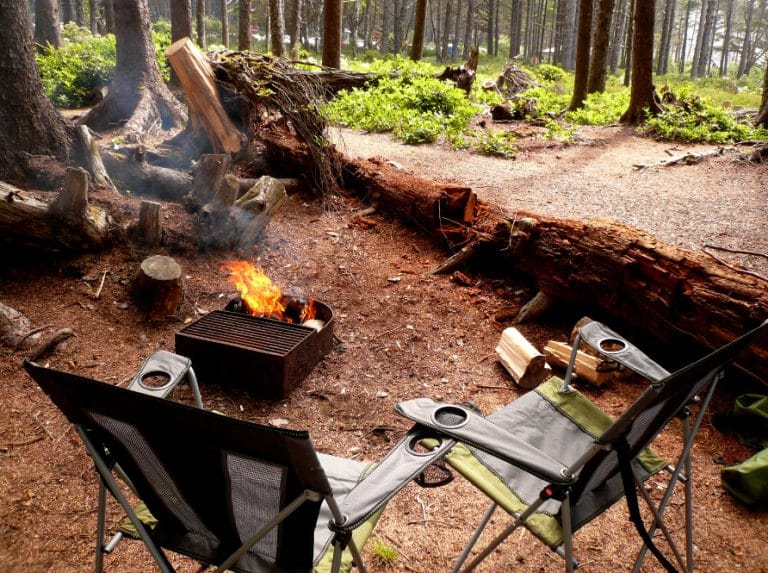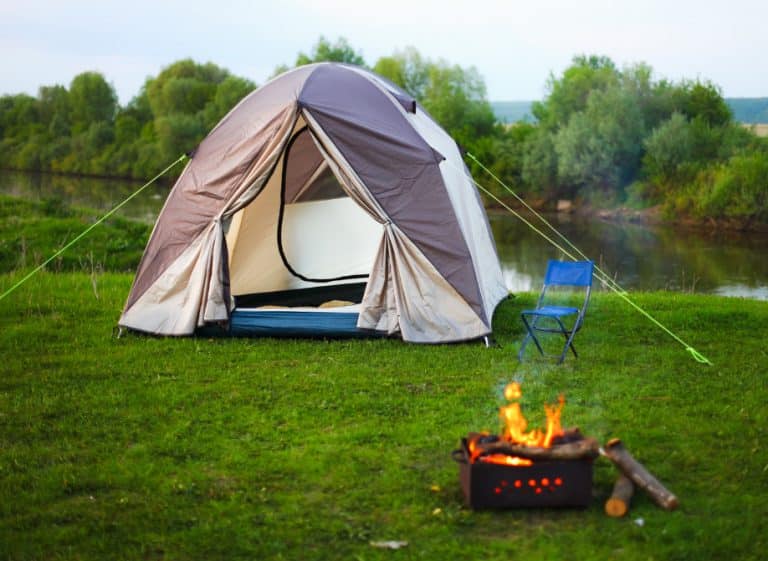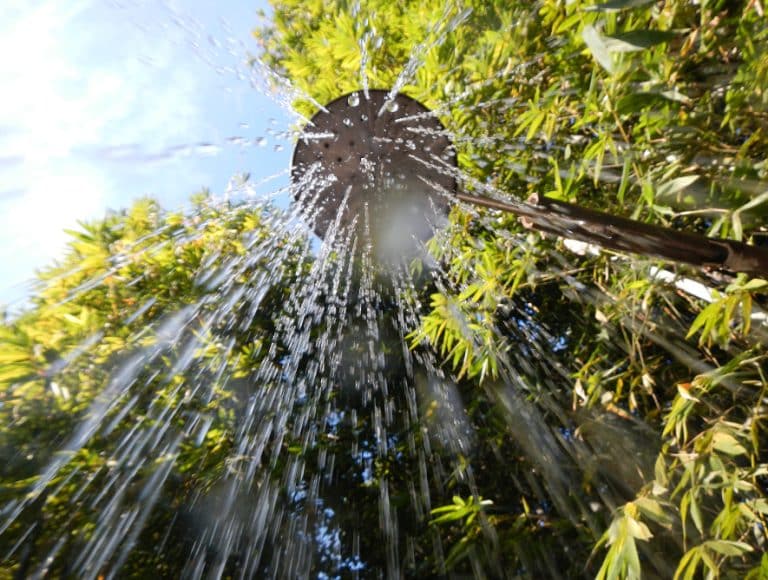Camping is an excellent way to connect with nature and appreciate the great outdoors. However, irresponsible camping practices can harm the environment and disturb wildlife habitats. In this article, we’ll discuss how you can camp with minimal environmental impact and protect the animals that call these natural spaces home.
Plan ahead and Choose the right campsite
Before heading out on your camping trip, research the area you plan to visit. Familiarize yourself with local regulations, weather conditions, and potential hazards. This knowledge will help you avoid sensitive wildlife habitats and make responsible choices regarding your camping activities.
Selecting an appropriate campsite is crucial for minimizing your environmental impact. Stick to established campsites or designated areas rather than creating new sites in undisturbed areas. Avoid camping near water sources, as this can disrupt the natural habitats of animals that rely on these resources.
Use eco-friendly camping gear
Opting for eco-friendly camping gear not only minimizes your impact on the environment but also promotes sustainable practices within the outdoor industry. By choosing products made from sustainable materials and responsible manufacturing processes, you are supporting companies that prioritize the well-being of our planet. Here are some tips for selecting eco-friendly camping gear:
- Look for gear made from recycled materials or sustainable natural resources, such as bamboo, organic cotton, or hemp. Many brands now offer products made from recycled plastics, metals, and fabrics, reducing waste and conserving resources.
- Choose gear with minimal packaging or packaging made from recycled or biodegradable materials. This reduces the amount of waste generated during production and disposal.
- Opt for products manufactured using environmentally friendly processes, such as water-saving dyeing techniques, solar-powered facilities, or carbon offset programs.
- Select durable, high-quality gear that will last for many camping trips, reducing the need for frequent replacements and minimizing waste. Investing in reliable, long-lasting equipment is not only better for the environment but also more cost-effective in the long run.
- Consider purchasing gear from companies with strong environmental commitments, such as those that donate a portion of their profits to conservation organizations or engage in environmental initiatives. Research brands’ sustainability policies to make informed decisions about the products you buy.
By choosing eco-friendly camping gear, you are not only minimizing your own environmental impact but also supporting the growth of sustainable practices within the outdoor industry. As more consumers demand environmentally responsible products, companies will be encouraged to prioritize sustainability and develop innovative solutions for greener outdoor recreation.
Respect wildlife
Respecting wildlife is an essential part of responsible camping and preserving the natural habitats we enjoy during our outdoor adventures. Disturbing or harming wildlife can have lasting negative effects on ecosystems and individual species. To ensure that you are a responsible camper who respects wildlife, follow these guidelines:
- Observe from a distance: Use binoculars or a camera with a zoom lens to observe animals without getting too close. Maintain a safe distance to avoid stressing them or putting yourself in danger. Remember that approaching or feeding wildlife can alter their natural behavior and make them dependent on humans, which can be detrimental to their survival.
- Keep your pets under control: If you bring your pets along, ensure they are leashed or otherwise restrained to prevent them from chasing or harassing wildlife. Familiarize yourself with the specific rules and regulations regarding pets at your campsite, as some areas may have restrictions.
- Store food and trash securely: Properly store food, trash, and scented items in bear-resistant containers or hang them in a tree, away from your sleeping area. This helps to prevent animals from being attracted to your campsite and becoming accustomed to human food, which can be dangerous for both wildlife and campers.
- Do not feed wildlife: Feeding wildlife, whether intentionally or accidentally, can lead to a variety of problems. Animals may become reliant on human food, lose their natural fear of humans, and become aggressive or sick. Stick to a “leave no trace” mentality and pack out all your trash.
- Avoid disturbing nesting and breeding sites: Be aware of signs indicating nesting or breeding areas and avoid these locations. Disturbing these sites can cause stress to wildlife and may lead to the abandonment of offspring or the disruption of mating habits.
- Leave plants and natural features undisturbed: Refrain from picking flowers, removing rocks, or disturbing other natural features. Removing or damaging these elements can have negative consequences on wildlife and their habitats.
By respecting wildlife and their natural habitats, you contribute to the preservation of these beautiful spaces for future generations to enjoy. Responsible camping practices ensure that our outdoor experiences remain rich and diverse, allowing everyone to appreciate the wonders of the natural world.
Minimize light pollution
Light pollution can have negative effects on both wildlife and the overall camping experience. Many animals, especially nocturnal species, rely on natural light cues for navigation, mating, and foraging. Artificial light can disrupt these behaviors and disorient wildlife. To minimize light pollution while camping, follow these guidelines:
- Use only the necessary amount of light for your activities. Opt for lower brightness settings or dimmable lights when possible.
- Choose warm-colored lighting (yellow or red) instead of bright white or blue lights, as they are less disruptive to wildlife.
- Direct your light sources downward or use lanterns with shades to minimize the spread of light.
- Turn off lights when not in use and avoid using outdoor decorative lighting at your campsite.
- Encourage fellow campers to be mindful of their light usage and educate them on the effects of light pollution on wildlife.
By minimizing light pollution, you can help protect wildlife habitats and preserve the natural beauty of the night sky for everyone to enjoy. Incorporating this practice into your eco-friendly camping routine will contribute to a more sustainable and harmonious relationship with the environment.
Minimize noise pollution
Noise pollution can also have adverse effects on wildlife, as well as the overall camping experience for you and other campers. Animals rely on their sense of hearing to detect predators, locate food, and communicate with each other. Excessive noise can cause stress, alter natural behaviors, and disrupt ecosystems. To minimize noise pollution while camping, follow these guidelines:
- Be mindful of your volume when talking, laughing, or playing music. Keep conversations and activities at a reasonable level, especially during quiet hours designated by the campsite.
- Avoid using loud devices or equipment, such as generators or speakers, whenever possible. If you must use them, try to limit their use to daytime hours and choose quieter models.
- Encourage children to respect the tranquility of nature and educate them about the importance of minimizing noise for the well-being of wildlife and fellow campers.
- Be considerate of neighboring campers and maintain a respectful distance when setting up your campsite.
- Familiarize yourself with and adhere to the specific noise regulations of the campground or park you’re visiting.
By minimizing noise pollution, you contribute to a more serene and enjoyable camping experience for everyone, while also helping to protect wildlife and maintain the delicate balance of ecosystems. Practicing quiet camping habits will foster a greater appreciation for the natural world and promote sustainable outdoor recreation.
Educate others
Share your knowledge of eco-friendly camping practices with fellow campers and encourage them to adopt responsible habits. Promote the Leave No Trace principles and demonstrate how small changes can make a big difference in protecting our natural environment.
Left it better than you found it
As you pack up and leave your campsite, make sure you’ve left it better than you found it. Remove any trash or debris, dismantle fire rings, and fill in any holes or trenches. This ensures the area remains pristine and enjoyable for future campers and wildlife alike.
Final Thoughts
Camping responsibly is essential for preserving the beauty and diversity of our natural environment. By following these eco-friendly practices and encouraging others to do the same, we can protect wildlife and ensure our favorite outdoor spaces remain healthy and vibrant for generations to come.
